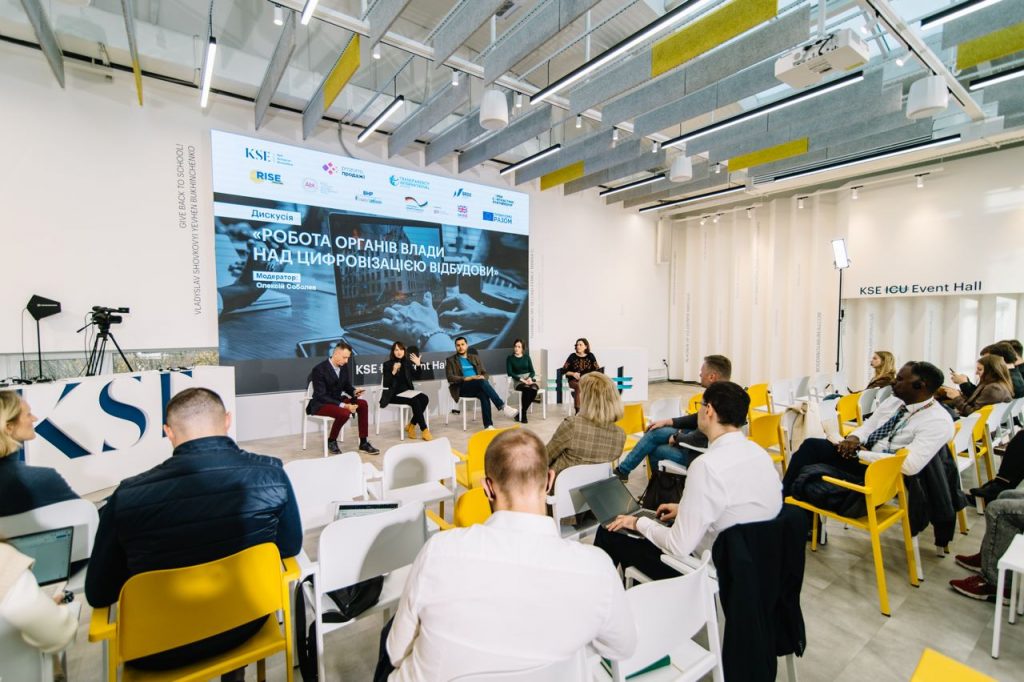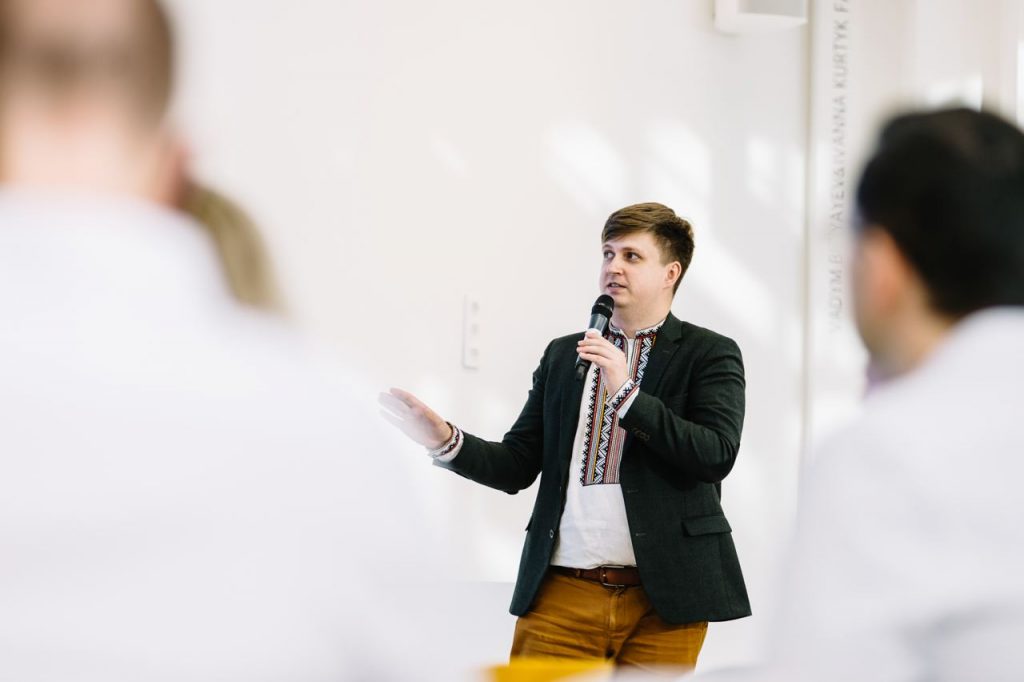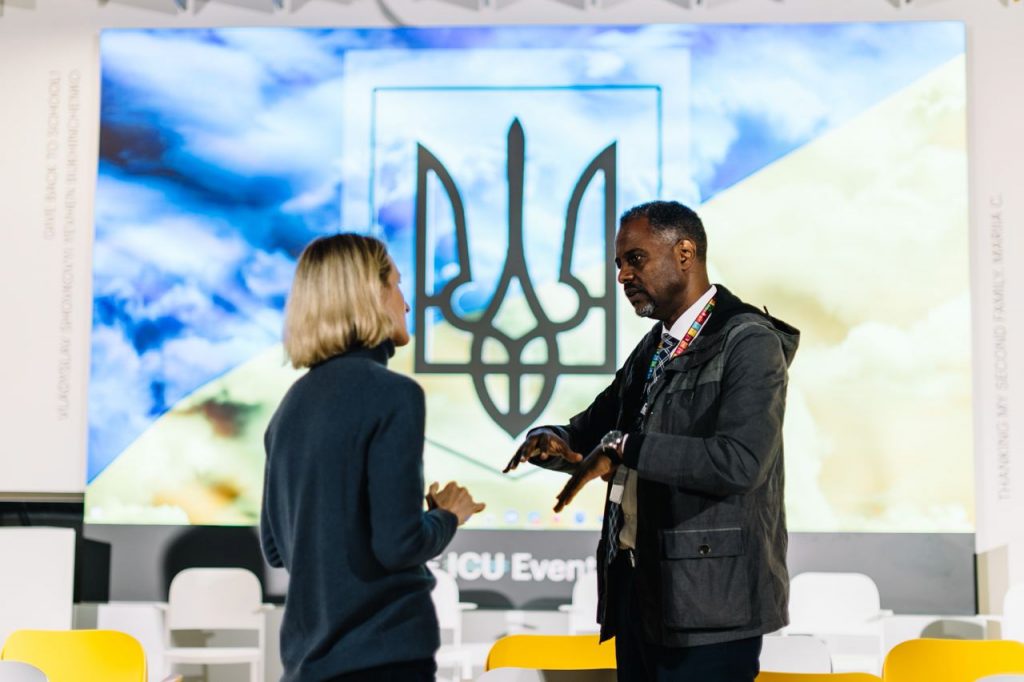The scope of the reconstruction of Ukraine is unprecedented, but it is important to learn the lessons of the reconstruction of other countries, in particular, in matters of speed of project implementation, planning horizon, prevention of corruption and active involvement of the public and local authorities.
The executive director of BRDO Oleksii Dorogan took part in the conference “Digital tools for the recovery of Ukraine”, where representatives of the public, authorities, business and international organisations discussed the formation of a unified vision of reconstruction and approaches to its digitalisation.

All reconstruction participants — both in Ukraine and abroad — must join forces to implement large-scale changes based on mutual trust, transparency, and accountability. That is why the use of electronic tools and systems, disclosure and use of open data is important. These principles are embedded in the Electronic Reconstruction Management System, the concept of which was developed by BRDO in cooperation with the RISE Ukraine coalition.
The system will be built according to the “umbrella” principle and will combine electronic platforms of ministries that are already successfully functioning (for example, eRoad) and will be integrated with other systems and modules that have already been developed (Prozorro, the newly created Register of destroyed and damaged property, etc.), or the development of which is planned or carried out in cooperation with authorities (for example, regional development GIS).
“Reconstruction is a complex process that will involve tens of thousands of projects. How to manage them all? To do this, we developed the concept of the Unified Electronic Management System for the Reconstruction in order to comply with the necessary criteria of transparency, efficiency, accountability and anti-corruption,” said Oleksii Dorogan, BRDO CEO, co-founder of the RISE Ukraine coalition.

The system will work according to three main principles, he noted. The first principle is ecosystemicity, because the system will combine many digital documents, some of which are already working successfully. The second is open by design, or everyone can see everything, for public control of the reconstruction process. The third is transactionality, i.e. the system will not be a reporting system, but a system where reconstruction should take place. We will create a central “bank” of projects, where all projects will have clear stages and a single standard of description for international donors.
“Thus, in the system, each Ukrainian and each organization will have their own role in the reconstruction process, and each of us will be able to influence it,” he said.
Viktor Nestulya, Open Contracting Partnership, RISE Ukraine, noted that the quality and quantity of reconstruction projects is a huge challenge. Not all reconstruction customers currently have the ability to provide high-quality project support, especially in those regions of Ukraine most affected by military aggression. A transactional reconstruction management system will help to strengthen this ability, because it will accompany the user and tell him exactly what he should do at each specific stage of the project life cycle.
Viktor Nestulya reminded that the RISE Ukraine Coalition is already working on the development and implementation of the Electronic Reconstruction Management System. “We are already developing joint solutions with the ministries and the President’s Office. We hope that together we will come to a consolidated vision,” he said.
The representatives of the international partners assured of their readiness to support the ambitious plan of restoration and modernisation of Ukraine and emphasised the importance of clear coordination of international aid from Ukraine, as well as building trust between all participants in the process. Through the use of digital tools and open data, the involvement of civil society is critical to the success of reconstruction.

During the event, a KSE study on approaches to the reconstruction of Ukraine, prepared with the assistance of GIZ, was presented. The study covers 144 global disaster recovery cases over the past 10 years. This experience contains many lessons important for the recovery of Ukraine. In particular, as noted by the head of the KSE Institute, Nataliia Shapoval, three key reasons for unsuccessful reconstruction attempts can be identified. The first is a failure in the export of expertise, the second is a short planning horizon, and the third is insecurity from military and criminal risks.
Corruption is a significant challenge of global reconstruction. “It arises not only at the top levels or at the grassroots, but also among a large number of organizations that implement these projects,” Nataliya Shapoval noted. According to her, the recovery infrastructure should contain all the best tools for preventing corruption at all levels. Anti-corruption reforms are still a relevant issue for Ukraine, so Ukraine should have specialists in the government in well-paid positions.
The event was also attended by:
Maksym Fedoseienko, head of KSE strategic projects;
Maksym Nefyodov, co-head of the KSE Institute project “Russia will pay” (Damaged.in.ua)
Khrystyna Zelinska, project manager of the Ministry of Development of Communities and Territories of Ukraine;
Oleksandra Azarkhina, Deputy Minister of Infrastructure of Ukraine;
Nadia Bigun, Deputy Minister of Economy of Ukraine;
Farid Safarov, Deputy Minister of Energy for Digital Development, Digital Transformations and Digitalization;
Klavdiya Maksymenko, Senior Country Officer, World Bank
Sadig Elamin, UNDP Information Management Officer;
Julda Kielyte, Economic and Fiscal Reforms Team Leader, Support Group for Ukraine, European Commission;
William Turner, Deputy Head Political and Economic Team, British Embassy Kyiv;
Jay Michael Totte, Anti-Corruption and Rule of Law Team Lead, USAID;
Tymofii Mylovanov, President of KSE Group.
The conference “Digital tools for the recovery of Ukraine” was organized by the Kyiv School of Economics (KSE), the RISE Ukraine coalition and the state electronic auction system Prozorro.Sales. Partners of the event: BHP Foundation, Transparency International Ukraine, GIZ, BRDO, UKAID, Open Contracting Partnership, EU Project “Let’s Go Together”, Damaged.in.ua Project, Abt Associates.
Recorded broadcast in Ukrainian: https://fb.watch/guqHD5gWAB
Recorded broadcast in English: https://youtu.be/_AFAeswHnlc